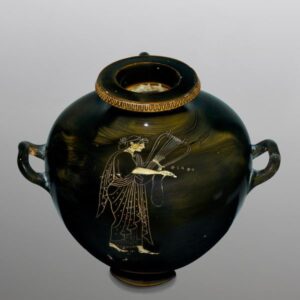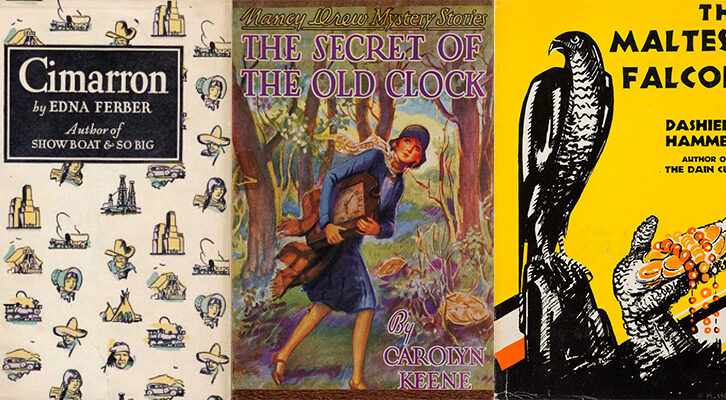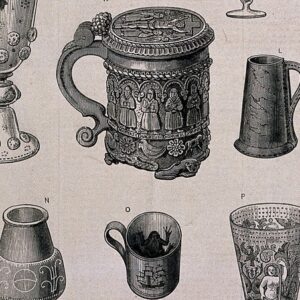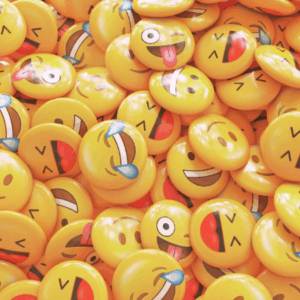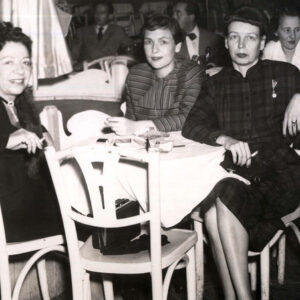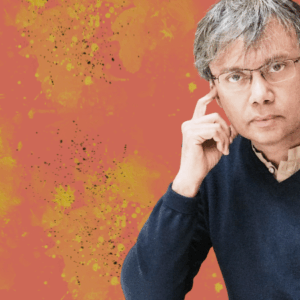
Svetlana Alexievich Grapples with Putin's Russia
From the Nobel Laureate's Latest Book, Secondhand Time
My father would say that he personally started believing in communism after Gagarin was sent into space. We’re the first! We can do anything! That’s how he and my mother raised us. I was a Little Octobrist, I sported the pin with the curly-headed boy; I was a Young Pioneer; a member of the Komsomol [1]. Disillusionment only came later.
After perestroika, we were all impatient for the archives to be unsealed. Finally, it happened. We learned the history that they had been hiding from us…
‘We need to attract ninety million out of the hundred that populate Soviet Russia. It’s impossible to talk to the rest of them–they must be eliminated.’ (Zinoviev, 1918.)
‘We must hang (and it has to be hanging, so that the people will see) no fewer than 1,000 inveterate kulaks, the rich ones… seize their grain, take hostages… Make sure that people hear about it one hundred versts [2] around and tremble from fear…’ (Lenin, 1918.)
‘Moscow is literally dying of hunger.’ (N.G. Kuznetsov to Trotsky.).
‘That’s not hunger. When Titus was taking Jerusalem, Jewish mothers ate their children. When I have your mothers eating their young, then you can tell me you’re starving.’ (Trotsky, 1919.)
People read newspapers and magazines, and sat in stunned silence. They were overcome with unspeakable horror. How were we supposed to live with this? Many greeted the truth as an enemy. And freedom as well. ‘We don’t know our own nation. We don’t understand what the majority of people think about; we see them, we interact with them every day, but what’s on their minds? What do they want? We have no idea. But we will courageously take it upon ourselves to educate them. Soon, we will learn everything and be horrified,’ my friend would say in my kitchen, where we often sat talking. I’d argue with him. It was 1991… A happy time! We believed that tomorrow, the very next day, would usher in freedom. That it would materialize out of nowhere, from the sheer force of our wishing.
From Varlam Shalamov’s Notebooks: ‘I participated in the great lost battle for the true reinvention of life.’ The man who wrote these words spent seventeen years in Stalin’s camps. He continued to yearn for the ideals… I would divide the Soviets into four generations: the Stalin, the Khrushchev, the Brezhnev, and the Gorbachev. I belong to the last of these. It was easier for my generation to accept the defeat of the communist idea because we hadn’t been born yet when it was still young, strong, and alive with the magic of fatal romanticism and utopian aspirations. We grew up with the Kremlin ancients; in Lenten, vegetarian times [3]. The great bloodshed of communism had already been lost to the ages. Pathos raged, but the knowledge that utopia should not be attempted in real life was already ingrained in us.
It was during the first Chechen war… At a train station in Moscow, I met a woman from the Tambov area. She was headed to Chechnya to take her son home from the war. ‘I don’t want him to die. I don’t want him to kill.’ The government no longer owned her soul. This was a free person. There were not many of them. More often, people were irritated with freedom. ‘I buy three newspapers and each one of them has its own version of the truth. Where’s the real truth? You used to be able to get up in the morning, read Pravda, and know everything that you needed to know and understand.’ People were slow to come out from under the narcosis of old ideas. If I brought up repentance, the response would be, ‘What do I have to repent for?’ Everyone thought of themselves as a victim, never a willing accomplice. One person would say, ‘I did time, too’, another, ‘I fought in the war’, a third, ‘I built my city up from the ruins, hauling bricks day and night.’ Freedom had materialized out of thin air: everyone was intoxicated by it, but no one had really been prepared for it. Where was this freedom? Only around kitchen tables, where, out of habit, people continued to badmouth the government. They reviled Yeltsin and Gorbachev: Yeltsin for changing Russia, Gorbachev for changing everything. The entire twentieth century. Now we would live no worse than anyone else. Be just like everyone else. We thought that this time, we would get it right.
Russia was changing and hating itself for its changes. ‘The immobile Mongol,’ Marx wrote of Russia.
* * * *
The Soviet civilization… I’m rushing to make impressions of its traces, its familiar faces. I don’t ask about socialism, I want to know about love, jealousy, childhood, old age. Music, dances, hairdos. The myriad sundry details of a vanished way of life. It’s the only way to chase the catastrophe into the contours of the ordinary and try to tell a story. Make some small discovery. It never ceases to amaze me how interesting everyday life is. There are an endless number of human truths. History is concerned solely with the facts; emotions are outside of its realm of interest. In fact, it’s considered improper to admit feelings into history. But I look at the world as a writer and not an historian. I am fascinated by people.
* * * *
My father is no longer living, so we won’t get to finish one of our conversations… He claimed that it was easier to die in the war in his day than it is for the untried boys to die in Chechnya today. In the 1940s, they went from one hell to another. Before the war, my father had been studying at the Minsk Institute of Journalism. He would recall how often, on returning to college after the holidays, students wouldn’t recognize a single one of their professors because they had all been arrested. They didn’t understand what was happening, but whatever it was, it was terrifying. Just as terrifying as a war.
I didn’t have many honest, open conversations with my father. He felt sorry for me. Did I feel sorry for him? It’s hard to answer that question… We were merciless toward our parents. We thought that freedom was a very simple thing. A little time went by, and soon, we too bowed under its yoke. No one had taught us how to be free. We had only ever been taught how to die for freedom.
So here it is, freedom! Is it everything we had hoped it would be? We were prepared to die for our ideals. To prove ourselves in battle. Instead, we ushered in a Chekhovian life. Without any history. Without any values except for the value of human life—life in general. Now we have new dreams: building a house, buying a decent car, planting gooseberries… Freedom turned out to mean the rehabilitation of bourgeois existence, which has traditionally been suppressed in Russia. The freedom of Her Highness Consumption. Darkness exalted. The darkness of desire and instinct—the mysterious human life, of which we only ever had approximate notions. For our entire history, we’d been surviving instead of living. Today, there’s no longer any use for our experience in war; in fact, it ought to be forgotten. There are thousands of newly available feelings, moods, and responses. Everything around us has been transformed: the billboards, the clothing, the money, the flag… And people themselves. People are now more colourful, more individualized; the monolith has been shattered and life has splintered into a million little fragments, cells, and atoms. It’s like in Dal’s dictionary [4]: free will… free rein… wide-open spaces. The grand old evil is nothing but a distant saga, some political detective story. After perestroika, no one was talking about ideas anymore—instead it was credit, interest, and promissory notes; people no longer earned money, they ‘made’ it or ‘scored’ it. Is all this here to stay? ‘The fact that money is a fiction is ineradicable from the Russian soul,’ wrote Marina Tsvetaeva [5]. But it’s as though Ostrovsky and Saltykov-Shchedrin [6] characters have come to life and are promenading down our streets.
I asked everyone I met what ‘freedom’ meant. Fathers and children had very different answers. Those who were born in the USSR and those born afterwards do not share a common experience. They’re people from different planets.
For the fathers, freedom is the absence of fear; the three days in August when we defeated the putsch. A man with his choice of a hundred kinds of salami is freer than one who only has ten to choose from. Freedom is never being flogged, although no generation of Russians has yet avoided a flogging. Russians don’t understand freedom, they need the Cossack and the whip.
For the children: freedom is love; inner freedom is an absolute value. Freedom is when you’re not afraid of your own desires, it’s having lots of money, so that you’ll have everything; it’s when you can live without having to think about freedom. Freedom is normal.
In the 90s… yes, we were elated; there’s no way back to that naiveté. We thought that the choice had been made and that communism had been defeated forever. But it was only the beginning…
Twenty years have gone by… ‘Don’t scare us with your socialism,’ children tell their parents.
From a conversation with a university professor: ‘At the end of the 90s, my students would laugh when I told them stories about the Soviet Union. They were sure that a new future awaited them. Now, it’s a different story… Today’s students have truly seen and felt capitalism: the inequality, the poverty, the shameless wealth. They’ve witnessed the lives of their parents, who never got anything out of the plundering of our country. And they’re oriented toward radicalism. They dream of their own revolution and wear red t-shirts with pictures of Lenin and Che Guevara.’
There’s a new demand for everything Soviet. For the cult of Stalin. Half of the people between the ages of nineteen and thirty consider Stalin an ‘unrivaled political figure’. A new cult of Stalin, in a country where he murdered at least as many people as Hitler?! Everything Soviet is back in style. ‘Soviet-style cafés’ with Soviet names and Soviet dishes. ‘Soviet’ candy and ‘Soviet’ salami, their taste and smell all too familiar from childhood. And of course, ‘Soviet’ vodka. There are dozens of Soviet-themed TV shows, scores of websites devoted to Soviet nostalgia. You can visit Stalin’s camps—on Solovki, in Magadan—as a tourist. The adverts promise that for the full effect, they’ll give you a camp uniform and a pickaxe. They’ll show you the newly restored barracks. Afterwards, there will be fishing…
* * * *
Old-fashioned ideas are back in style: the great empire, the ‘iron hand’, the ‘special Russian path’. They brought back the Soviet anthem; there’s a new Komsomol, only now it’s called Nashi [7]; there’s a ruling party and it runs the country by the Communist Party playbook; the Russian president is just as powerful as the General Secretary once was, which is to say he has absolute power. Instead of Marxism-Leninism, there’s Russian Orthodoxy…
* * * *
On the eve of the 1917 Revolution, Alexander Grin wrote, ‘And the future seems to have stopped standing in its proper place.’ Now, one hundred years later, the future is, once again, not where it should be. Our time comes to us second-hand.
________________________________
[1] Little Octobrists, Young Pioneers, and the Komsomol were Soviet youth organizations that most children joined in school. Children were Little Octobrists from age 7 to 9, when they would join the Young Pioneers. At 14, children could elect to join the Komsomol, the ‘youth division of the Communist Party.’
[2] Obsolete Russian unit of length, equal to approximately 1.07 kilometers, or .7 miles.
[3] Russian and Soviet modernist poet Anna Akhmatova (1889-1966) coined the term ‘the vegetarian years’ to describe a period when her work was merely suppressed and not published, as opposed to the ‘cannibalism’ of Stalin’s purges, when Soviets, including many fellow poets, were murdered by the millions. It is used colloquially to denote the contrast between Stalinism and what followed.
[4] Vladimir Dal (1801-1872). Author of the most influential Russian dictionary collecting sayings, proverbs, and bywords compiled during his extensive travels through Russia.
[5]Marina Tsvetaeva (1892-1941) was a Russian and Soviet modernist poet.
[6] Alexander Ostrovsky (1823-1886), prominent nineteenth-century Russian realist playwright whose plays depicting the petite bourgeoisie are still among the most performed in Russia today. Mikhail Saltykov-Shchedrin (1826-1889), satirist, novelist, and playwright, whose works criticized Russian officialdom and the prevailing social order of his day.
[7] Nashi: popular Putinist youth organization; the name means ‘Our People.’
*
Excerpted from SECONDHAND TIME by Svetlana Alexievich. Copyright © 2016 by Svetlana Alexievich. Excerpted by permission of Random House, A Penguin Random House Company. All rights reserved. No part of this excerpt may be reproduced or reprinted without permission in writing from the publisher.
Svetlana Alexievich
Svetlana Alexievich is a Belarusian journalist, writer, and historian. The daughter of two teachers, she studied journalism at the Belarusian State University in Minsk and went on to work as a teacher and newspaper journalist. She published her first book, The Unwomanly Face of War, an oral history of women’s experiences in World War II, in 1985, and since then has released five chronicles of Soviet and post-Soviet history, including Boys in Zinc (1991) and Voices from Chernobyl (1997). In 2015, she was awarded the Nobel Prize in Literature, the first time it had been given to a journalist.









